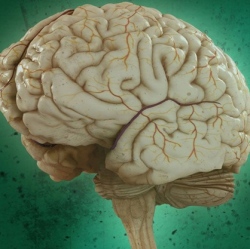
A drug appears to slow the brain’s death and preserve mental function in patients with Alzheimer’s disease, a study shows. Developing such a treatment is one of the biggest challenges in medicine. But serious scientific questions remain as the drug – LMTX – inexplicably works only in patients not taking other dementia pills.
The data on 891 patients was presented at the Alzheimer’s Association International Conference in Toronto. Overall, the trial – which treated patients for 15 months – was a flop, as there appeared to be no benefit to taking LMTX.
However, an analysis on just the 15% of the patients who had not already been taking drugs to help manage their symptoms showed a benefit. In this tiny subset of patients, tests showed thinking power was maintained and MRI scans found the death of brain cells was reduced.
Yet there are certainly too few patients in the sub-group to be certain of the drug’s effect.
‘Encouraging’
Dr Serge Gauthier, the director of the Alzheimer’s Disease Research Unit at McGill University in Canada, said: "It is both encouraging to see improvements of this magnitude in the standard cognitive and functional tests and reassuring to see the supporting brain scan evidence of a slowing in disease progression.
"In a field that has been plagued by consistent failures of novel drug candidates in late-stage clinical trials and where there has been no practical therapeutic advance for over a decade, I am excited."
Even the company that manufactures LMTX, TauRX, cannot explain why it might work only in patients not taking other dementia drugs.
Dr David Reynolds, the chief scientific officer at the Alzheimer’s Research UK charity, told the BBC News website: "It does worry me as a scientist why it doesn’t work with other therapies."
Possible explanations include:
the drugs interfere with each other
there is something different about the patients not on other medication
the small size of the sub-group in the trial means the results may have been fluked
Dr Reynolds added: "The data suggests it is slowing down the disease, but the important caveat is these small numbers.
"It is encouraging, but we need more data and will have to run a study with it as just a monotherapy [on its own].
"It will still be a years from reaching patients even assuming it works."
The drug targets one of the key characteristics of Alzheimeir’s disease – the build of of tangles of the protein tau inside neurons.
It is thought these tangles may be the final stage that leads to the death of brain cells.
